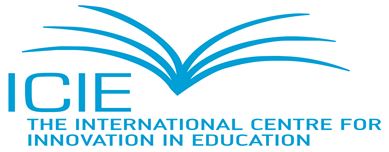International Journal for Talent Development and Creativity (IJTDC)

Focus of the Journal:
This journal will provide an international, inter-disciplinary, and cross cultural forum for practitioners and researchers interested in addressing issues related to talent development and creativity among children and young adults. It will emphasize an expansion of creativity and talent that is holistic and multi-cultural. Issues, new development, theoretical debate, and model development will be highlighted.
The focus of this journal is to highlight innovative programs and strategies that encourage talent development in children, youth, and adults in educational contexts. Teachers, counselors, scholars and in higher education, and consultants are encouraged to contribute articles that feature specific teaching/ learning approaches, innovative programs, and models of educational leadership that highlight the diverse ways talent, skill, and creativity can be encouraged, nurtured, and applied among children, adolescent, and adult learners.
How do teachers, schools, and educational institutions, in general, promote a holistic sense of creativity and skill development among their culturally diverse student groups? Are teachers encouraged to use innovative methods and approaches to learning? The purpose of this journal will be to inform educators and feature specific educational programs and teaching approaches that serve to reduce personal, social, and cultural barriers that impede talent development and creativity. We welcome practitioners and theorists who work in a range of programs that promote talent development in content areas such as art, drama, creative writing, music, science and environmental education, peace education, and athletic development. Teaching and learning approaches might include: innovative mentorship programs, experiential and discovery learning approaches, collaborative and co-operative learning, self-directed learning projects, and technology-based learning.
Key Aims of the Journal:
- Expansion of conceptions of talent and creativity;
- A forum to discussion innovations in educational leadership;
- A forum to discuss and disseminate research and viewpoints on the nature of talent development and creativity in specific educational programs and teaching approaches;
- Papers submitted can be based on: theory/ model building; case studies of innovative approaches; description of literature relevant to creativity and talent; book review; empirical research related to creativity and talent development among children, adolescents, and adult learners; and
- Encourage efficient peer review: Articles will be read by the editor-in-chief first and then sent out for peer review. The review process will take place within 6 weeks. Publication should be within 6 months.
Copyright 2013 – The International Centre for Innovation in Education (ICIE) and Lost Prizes International (LPI), all rights reserved.
The International Journal for Talent Development and Creativity (IJTDC) is a refereed journal published twice a year by the ICIE and LPI. The journal will be available in print and on-line.
Submit all manuscripts in quadruplicate, double spaced, accompanied by a short abstract (approximately 100 to 150 words), and with citations and references, following the guidelines set forth in the Publication Manual of the American Psychological Association, 6th Edition.
Include author’s full mailing address, phone and fax numbers, as well as an e-Mail address.
 Send manuscripts to:
Send manuscripts to:
Editor-in-Chief:
Karen Magro
Faculty of Education, University of Winnipeg,
515 Portage Avenue,
Winnipeg, Manitoba, R3B 2E9, Canada.
e-Mail: This email address is being protected from spambots. You need JavaScript enabled to view it.
Founders:
Taisir Subhi Yamin
ICIE,Germany. Universite Paris Descartes.
Ken W. McCluskey
University of Winnipeg, Canada.
Copy Editor:
Gord Beveridge
Associate Editors:
Beverley Brenna
Faculty of Education, University of Saskatchewan, Saskatoon, Canada.
e-Mail: This email address is being protected from spambots. You need JavaScript enabled to view it.
Don Ambrose
Editor, Roeper Review, College of Liberal Arts, Education, and Sciences, Rider University, U.S.A. e-Mail: This email address is being protected from spambots. You need JavaScript enabled to view it.
Dorothy A. Sisk
Director, The Gifted Child Center; Lamar University, Beaumont, Texas 77710, U.S.A., e-Mail: This email address is being protected from spambots. You need JavaScript enabled to view it.
Heinz Neber
University of Munich; Germany. e-Mail: This email address is being protected from spambots. You need JavaScript enabled to view it.
Kathleen Pierce
Faculty of Education, Rider University, Lawrenceville, N.J., U.S.A.
Roland S. Persson
School of Education & Communication, Jönköping University, P.O. Box: 1026, SE-55111, Jönköping, Sweden. e-Mail: This email address is being protected from spambots. You need JavaScript enabled to view it.
Sandra K. Linke
ICIE-Germany, Postfach 12 40, D-89002, Ulm-Germany.
e-Mail: This email address is being protected from spambots. You need JavaScript enabled to view it.
Todd Lubart
Laboratoire Adaptations Travail-Individu (LATI), Institut de Psychologie, Universite Paris Descartes, France. e-Mail: This email address is being protected from spambots. You need JavaScript enabled to view it.
Trevor J. Tebbs
Psychology Department, Castleton State College, Castleton, Vermont, U.S.A. e-Mail: This email address is being protected from spambots. You need JavaScript enabled to view it.
International Editorial Review Board:
Alessandro Antonietti, Italy
Birgit Neuhaus, Germany
Claude Houssemand, Luxembourg
Dean Keith Simonton, USA
Dimitry Ushakov, Russia
Edward Nęcka, Poland
Jacques Grégoire, Belgium
James Kaufman, USA
Joseph Renzulli, USA
Katerina M. Kassotaki, Greece
Leandro Almeida, Portugal
Lynn D. Newton, England
Maureen Neihart, Singapore
Moshe Zeidner, Israel
Susen Smith, Australia
Sylvie Tordjman, France
Tracy Riley, New Zealand
Uğur Sak, Turkey
Vlad P. Glăveanu, Switzerland
University of Winnipeg Reviewers:
. Donna Copsey-Haydey . Gary Evans
. Eleoussa Polyzoi . Joseph Goulet
. Michael Paul Lukie
. Kenneth L. Reimer
 Send manuscripts to:
Send manuscripts to: 